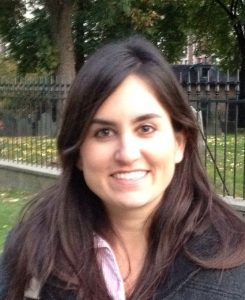Boost Your Academic Success with Expert Advice!
Get the best study tips, test prep strategies, and academic insights delivered straight to your inbox.
Prepped and Polished has been featured on:






 I have a little blue notebook—nothing special to look at—that’s worth its weight in gold.
I have a little blue notebook—nothing special to look at—that’s worth its weight in gold.
Why, you may ask?
Because it’s full of the names of dozens of people I’ve meaningfully interacted with since I started thinking about getting a job. I started thinking about getting a job in the 10th grade, when I did an internship with a local radiologist. His name is one of the first in my little book.
A skim through the book’s pages is like a walk through my academic and professional ride. I note the names of high school teachers I talked to about college entry; college professors who are also science writers, and who gave me direction as I pursued science writing (and who continue to give me direction today); a grad school advisor whose very presence inspires me to keep writing in new and challenging ways (that’s been important over the years—not to stagnate); numerous professional writers, themselves connected to other writers, and with experience working at different media outlets around the country (and the world); scientists who would be happy to help with a story; travelers who can suggest the best sights in Australia; and seasoned veterans of life who could offer wisdom about anything under the sun.
How did I meet them? Networking
I encountered some of these individuals through my coursework or through mutual friends. Others I sought out (I will go to MIT and speak right to the source when crafting an article on a new technology, for example). All of them can provide a tremendous array of insight into any professional opportunities I might consider along the way (or have considered). They can also speak to the benefits of making decisions to do things like freelance or work for a company. They’re also just plain fun.
Over the years, as I’ve been in different settings, academic and professional, I’ve made it a point to ask people questions about how they got to where they are; I find the resulting stories fascinating. (One fellow I know with a background in aerospace studies, for example, is now building crop loss predication tools for farmers). The way people get from what they were interested in when they were young, to what they studied, and ultimately to the work they have ended up pursuing most passionately is inevitably a great story—and one that can reveal ways in which to use the knowledge you may previously not have contemplated. (Did you know you can use a background in math to help map out advertising campaigns?)
So I keep asking people: how did you get here?
I also like to touch base with these people I meet as the months move on and hear about their work.
One way to describe this activity could be “networking,” which Wikipedia defines as groups of like-minded businesspeople recognizing, creating, or acting upon business opportunities. It’s true that great opportunities—including my current position, as well as my pursuit of a Fulbright scholarship in Spain—resulted from my knowing different people whose names are in my little blue book. But I realize I think of knowing them as more than that, a warm, wonderful, and informative web that’s given scope and shape to my life. It’s wonderful. And I’m farther along—and looking farther out—because of it.
My recommendation to you is to keep a little notebook, too. Jot down the names of individuals you meet who are making great strides. Seek out more such individuals and ask them how they got to where they are. Your own possibility will be magnified for it, and in turn, someday, you’ll magnify that of others, too.
Meagan Phelan holds an M.A. in Science Writing from The Johns Hopkins University in Baltimore, MD and a B.A. in Biology from Gettysburg College in Gettysburg, Pa. She has freelanced as a science writer and is a Fulbright Scholar. She currently works as a Senior Writer and Editor at AIR Worldwide, a catastrophe risk modeling firm based in Boston.
Do you think networking is important for students and young adults? How does networking work in your daily life?
Post your tips/comments below.